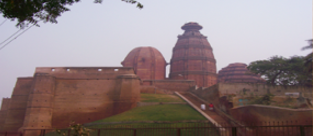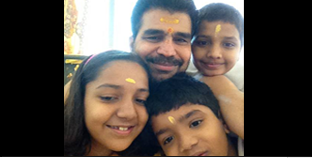Chapter 1 : 36In this verse, Arjuna says, “If we kill our own kith and kin, what kind of happiness will we get?” Arjuna is worried about losing
READ MORE
Chapter 1 : 10
Aparyāptaṁ tadasmākaṁ balaṁ bhīṣmābhirakṣitam,paryāptaṁ tvidameteṣāṁ balaṁ bhīmābhirakṣitam.
Despite the numerical superiority of the Kaurava army, Duryodhana, in his arrogance, begins to question the strength and commitment of his own commander, Bheeshma. His pride blinds him to true merit, leading him to belittle those who stand by him. When his taunts and doubts toward Dronacharya go unacknowledged, his frustration spills over, and he directs his subtle criticism toward Bheeshma—his own grandsire. Duryodhana sees the Pandava army, though smaller, as more powerful and strategically led, especially with warriors like Bhima at the forefront. In doing so, he reveals a common trait of the arrogant mind: the refusal to recognize and accept the competence, leadership, and ability of anyone outside their own circle. Rather than inspiring confidence. Arrogance demotivates and degrades others even in public, even among allies.
No Schedules for this section.
Sapthaham
Date & Time : 17-02-2026 - 23-02-2026 at 6 am
Venue : Bhagavati temple,Kavanadu,Kollam
Contact Person : Unni Radhakrishnan
Contact Number : 9495088062 /9387696549



